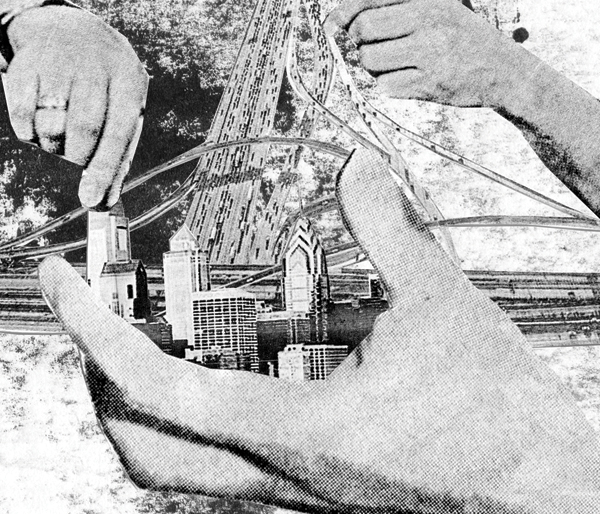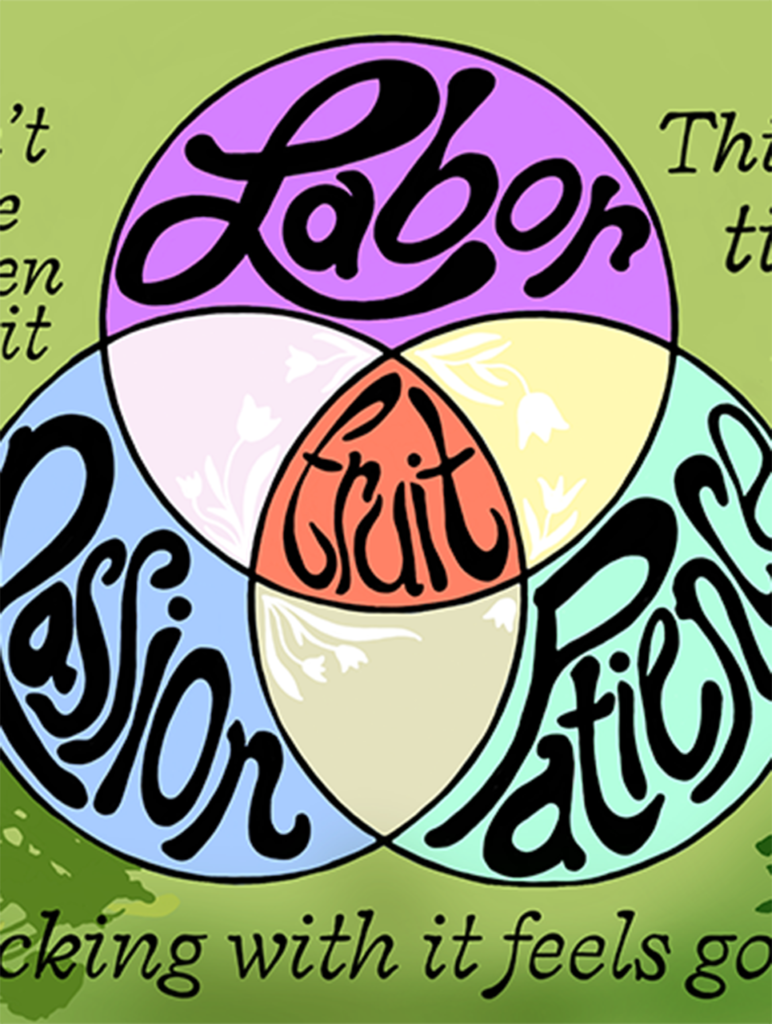illustration by Kathleen White
Muting the Feedback
by Geoff Kees Thompson
If you live near Washington Avenue in South Philadelphia, or traverse it on a regular basis, you’ve probably felt that this wide arterial corridor, a former rail yard, leaves something to be desired. Washington Avenue is a space given over to heavy car traffic, poor enforcement of traffic laws and very little reason for a pedestrian or cyclist to enjoy using it. Washington Avenue is also the site of frequent deaths and injuries caused by crashes involving motor vehicles, pedestrians and cyclists. Last fall, one such crash caused the death of Sheena White, a 29-year-old mother killed near the intersection of 15th and Washington.
Though tragic, these crashes are not surprising—but they are preventable. Public safety studies confirm several key factors leading to the increased frequency and severity of crashes involving cars, and Washington Avenue exhibits all three: it’s a wide street with multiple lanes and no traffic calming infrastructure. The Planning Commission found that in a three-year period alone, more than 900 crashes occurred along Washington Avenue. Unless re-planned, it will continue to become the site of preventable tragedies.
Yet, rather than quickly address these problems, the City of Philadelphia has fallen victim to the tyranny of consensus and dithered on ways to improve this vital corridor. Community meetings on Washington Avenue have been going on since 2013, and still no action has been taken. Washington Avenue passes through multiple neighborhoods, green spaces, housing developments, retail clusters and industrial uses, all with differing ethnic and socioeconomic backgrounds and—perhaps most importantly—two different councilmanic districts whose leadership is attempting to corral support from the largest base of this fragmented area.
Through this process, the limits of community feedback have come into focus. Last year, the city presented thoughtful plans that involved a road diet for Washington Avenue. Road diets remove one lane of traffic on multiple-lane roads to reduce crashes and aggressive driving. Space freed up by removing travel lanes is given back to other uses on the street, with very little impact to drivers. For Washington Avenue, devising a better way for vehicles to load and park is also a means to improve street safety. The Spruce and Pine Street bike lanes are a great example of how this strategy has created safer streets with reduced crashes. On September 3, yet another community meeting on the future of Washington Avenue was held. But this time, instead of a plan being presented, the Planning Commission led a community brainstorming session to build more consensus about plans for Washington Avenue. In a rather ironic turn of events, folks on the west side of Washington chose a re-striping scheme nearly identical to what exists today, a scheme that is encouraging high rates of speed and higher than average vehicular crashes.
The tyranny of consensus here means our politicians are directing a Planning Commission that is not politically independent. Staff is sent back to the drawing board multiple times, only to water down their own professional recommendations informed by years of education and experience. Community preferences for the status quo, which don’t address the most serious problems facing the avenue, replace their expertise. This should trouble anyone who believes that city agencies should act using their professional knowledge to improve our lives, not bow to pressure from a general public who is not professionally trained to make such decisions.
Other cities like New York and Pittsburgh have become more nimble in addressing street safety. Pittsburgh planned, engaged community members and built a downtown network of new protected bike lanes in four months. In Philadelphia, waiting for an impossible consensus across widely divergent levels of planning expertise seems to be the modus operandi. What we need instead are bolder, quicker actions. Our communities, though willing and capable of providing thoughtful feedback on projects, are ultimately not city planners. Our politicians, though hardly at risk for being challenged in a primary for reconfiguring a street, must make decisions, not wait years for consensus.
Streamlining our city planning models and trying new street configurations using paint and temporary infrastructure are critical. We need politicians to enable our Planning Commission to do so. What’s at stake is one of city government’s most sacred duties: ensuring the safety and preservation of human life on our streets.
Geoff Kees Thompson is a co-founder and chair of the 5th Square, a non-partisan political action committee focusing on improving Philadelphia through better urban policy and city planning.









